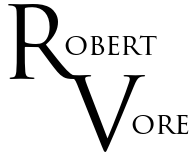We came up with a code, I remember it.
Sitting in a sandwich shop in downtown Auburn, where later (during our engagement) I would get my car towed for parking at the bank next door during a team bonding dinner. But this time, months before, it was just us, and we came up with a code.
Not on purpose, but on accident.
"How are you?," you'd ask, looking in my direction.
"Good," I'd say, shrugging. "I'm fine."
And then you'd look at me, and you'd ask it again: "How are you?"
Even to this day, that repetition sticks with me, deep in my brain and my heart. It says 'I refuse to settle for your passive handwave of an answer.' It says 'I am here to know you, and to know you well.' It says 'I care more about your cake than your frosting,' it says 'I want to know you deeply. I want to know you honestly.
We used this code for awhile, without really acknowledging what it was asking. I use it now, with my clients and with my friends. It does seem that our universal first instinct is to give a cheap answer, to assume that the person asking doesn't really want to know how we are. (tweet)
Once, recently, a friend asked me how I was doing and I responded with a joke that avoided giving an actual answer. Afterwards, I had the thought to find him later and apologize, to tell him that he deserved a more honest answer as a friend, that I was struggling to get by that day, that week, that month. He had left for the day by the time I moved on that thought; I regret it often.
We made a code, and I'm forever grateful that we did. I wish we didn't have to, that the baseline assumption was 'this is a real question with real heart behind it.' I wish the starting point was 'they really care and I owe them an honest answer.' I suppose the honest work of this life is to find the places where those assumptions are true, where we are surrounded by people who not only want honest answers but demand them, who refuse to let us coast by on cheap words of minimal reassurance. (tweet)
If this is hard (and it is hard), I am thankful that we found ways to talk before we found the words.

